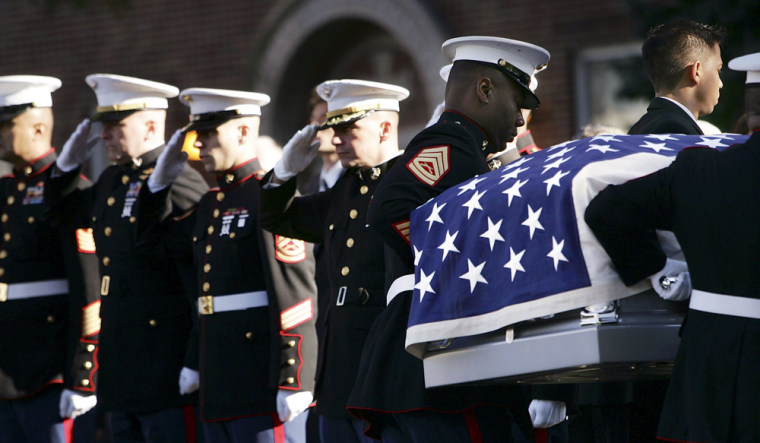The U.S. military death toll in Iraq for October climbed to 100 on Monday, a week before U.S. elections in which President George W. Bush’s Republicans could lose control of Congress over his policies in Iraq.
The U.S. military said a Marine was killed in combat in western Anbar province on Sunday, bringing the monthly death toll to 100 -- the fourth deadliest for U.S. troops since the March 2003 U.S.-led invasion.
October was already the deadliest month since January 2005 when 107 U.S. troops were killed. The highest monthly toll was in November 2004 when 137 deaths were recorded.
Opinion polls show growing numbers of U.S. voters want to see the 140,000 U.S. troops in Iraq starting to come home. Since the invasion which toppled Saddam Hussein, a total of 2,813 U.S. troops have been killed.
Bush’s Republican Party faces possible loss of control of Congress in November 7, with opinion polls showing dismay over his policy on Iraq could be a critical factor in voter intentions.
'No rift whatsoever'
Despite days of public wrangling between Washington and Baghdad that raised new questions about Iraq policy, Foreign Minister Hoshiyar Zebari said on Monday his government will ask the U.N. Security Council to extend the mandate governing the presence of U.S.-led forces in Iraq for another year.
The United States is pressing for action from the Iraqis and the Iraqis insist their hands are tied by lack of adequate control over their own forces. But Zebari said there was “no rift whatsoever” between the two.
“We believe still there is a need and the presence of the multinational force is indispensable for the security and stability of Iraq and of the region at the moment,” Zebari told Reuters in an interview.
“At the same time, the Iraqi government is ... willing to take more security responsibilities from these forces to do its part.”
Security Council Resolution 1637, which legitimizes the U.S.-led military presence in Iraq, expires on December 31 and Zebari said Iraq would seek a one-year extension.
He also said Syrian Foreign Minister Walid al-Moualem had agreed to visit Baghdad, possibly in November, in what he called an “acid test” of Syria’s attitude. Iraq and the United States accuse Syria and Iran of supporting insurgents. The visit would be the first by a Syrian minister since the invasion.
Iraq forces buildup
Prime Minister Nuri al-Maliki and his U.S. backers have been struggling to bring stability to Iraq more than three years after the U.S.-led invasion. Sectarian violence kills about 100 people a day and political wrangling is hampering reforms.
Maliki and Bush agreed at the weekend to accelerate efforts to build up Iraqi security forces after days of public tension between the two leaders.
Bush, aiming to calm an increasingly impatient America over the war in Iraq, reminded Maliki last week that his patience was “not unlimited” and his support for the prime minister conditional on him making “tough decisions.”
Washington is anxious for Maliki, a Shiite Islamist, to crack down on Shiite militia death squads blamed for much of the killing that is pushing Iraq toward a sectarian civil war.
Papering over cracks, Maliki and the U.S. ambassador on Friday declared common goals and said Baghdad had “timelines” for political developments.
Maliki says he could get violence under control in six months if the U.S. military gave his forces more weapons and responsibility -- half the 12 to 18 months estimated by a top U.S. general.
